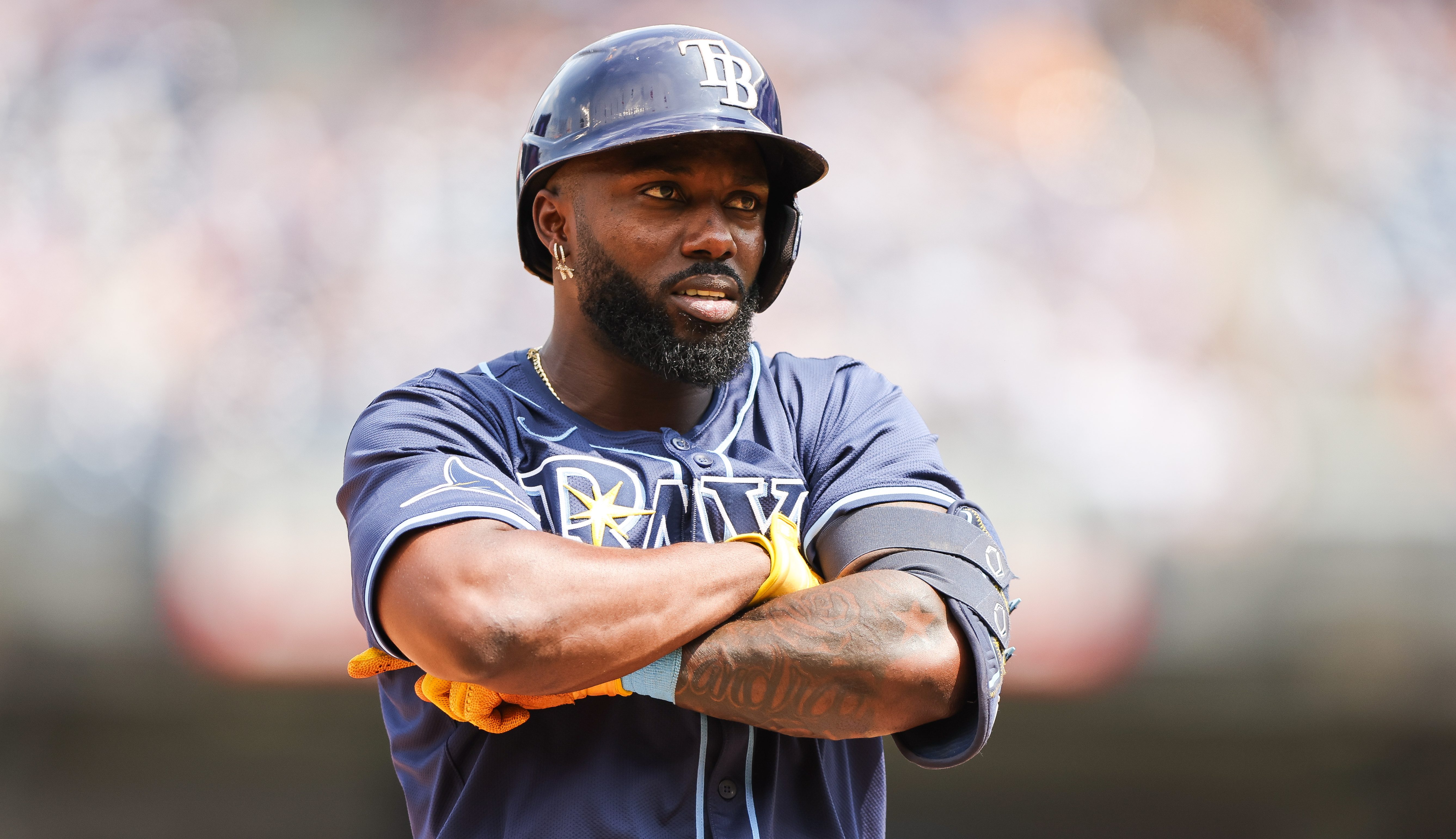Jackie Robinson Day is one of the best annual Major League Baseball traditions where everybody around the league dons a No. 42 uniform.
Jason Heyward held court at his locker Saturday before the 2017 iteration of Jackie Robinson Day and explained what the event means to him.
"It's great to be able to have it every year," Heyward said. "Some things, the game won't let you forget, which is awesome. It brings people together for a common reason.
"We love to play; we love to watch as fans. It's awesome to be able to put differences aside and have that common ground, share that passion for one game. It's a step in the right direction, I feel like, to be reminded of things like that."
Heyward is going throwback with his look for Saturday, wearing high socks as homage to the style of the trailblazer who helped bust down the color barrier in professional baseball.
It's also notable for Heyward he gets to experience Jackie Robinson Day at Wrigley Field, the only current MLB stadium Robinson played at (he hit .295 with a .400 on-base percentage in 93 career games at "The Friendly Confines").
"To get to do it here, at this stadium," Heyward said. "The history that's here, as well. It's just really cool. I feel like it takes you back and it makes you feel like you get to be playing in that time for a day.
"It's one of the fun things about this game is you get to pay homage to a historic moment like this, especially for off the field, the impact it had as well."
Heyward also spent a lot of time discussing his thoughts on why black players are not more prevalent in baseball.
Only 7.7 percent of MLB players are black in 2017, which is only up a tick from the 6.7 percent in 1956, Robinson's final season.
Major League Baseball is more diverse than it's ever been with 34.6 percent of active players on the 2017 Opening Day roster registering as non-white.
But why aren't there more black players in the game?
For starters, five black players began the year on the disabled list, which skews the numbers.
Heyward offered other ideas:
"As far as college, I feel like any household that says, 'Get an education, try to do better for yourself, start a family,' those kinds of things — the scholarship numbers in baseball are really low," Heyward said. "There's not a lot of opportunity there. You look at trying to go to college and hopefully get a job and set yourself up for a career — even outside of sports — football has a lot higher numbers.
"I feel like seeing more people in a direction where there's more opportunity. It's hard to make it in baseball regardless."
So what can baseball do?
"I don't know," Heyward said. "Talk about people trying to have a job after school. As far as playing a sport, guys want to go to college and have sports pay for their education some. Everybody's family can't afford to take out a loan. People still have to pay back loans well after they're out of school.
"I couldn't tell you where to being as far as getting guys into college. As far as kids playing in the inner cities and in general, they're playing. Especially in Georgia, where I grew up. A lot of African-Americans are playing baseball.
"It's all about pursuing that dream and having the means to do it and also being lucky and being able to make it."
Heyward's passion for baseball originated as a kid. His father outlawed football in the household because of the violent contact involved in the sport, but baseball was always the favorite of Heyward's dad, who was a Mets fan in the 1980s in the heyday of Dwight Gooden and Daryl Strawberry.
Heyward himself said he really got into the game traveling around the country playing as a kid and watching Ken Griffey Jr., Alex Rodriguez and Randy Johnson.
"Once I saw that, I thought, 'I wanna try and do this forever,'" he said. "It stuck and here we go."


